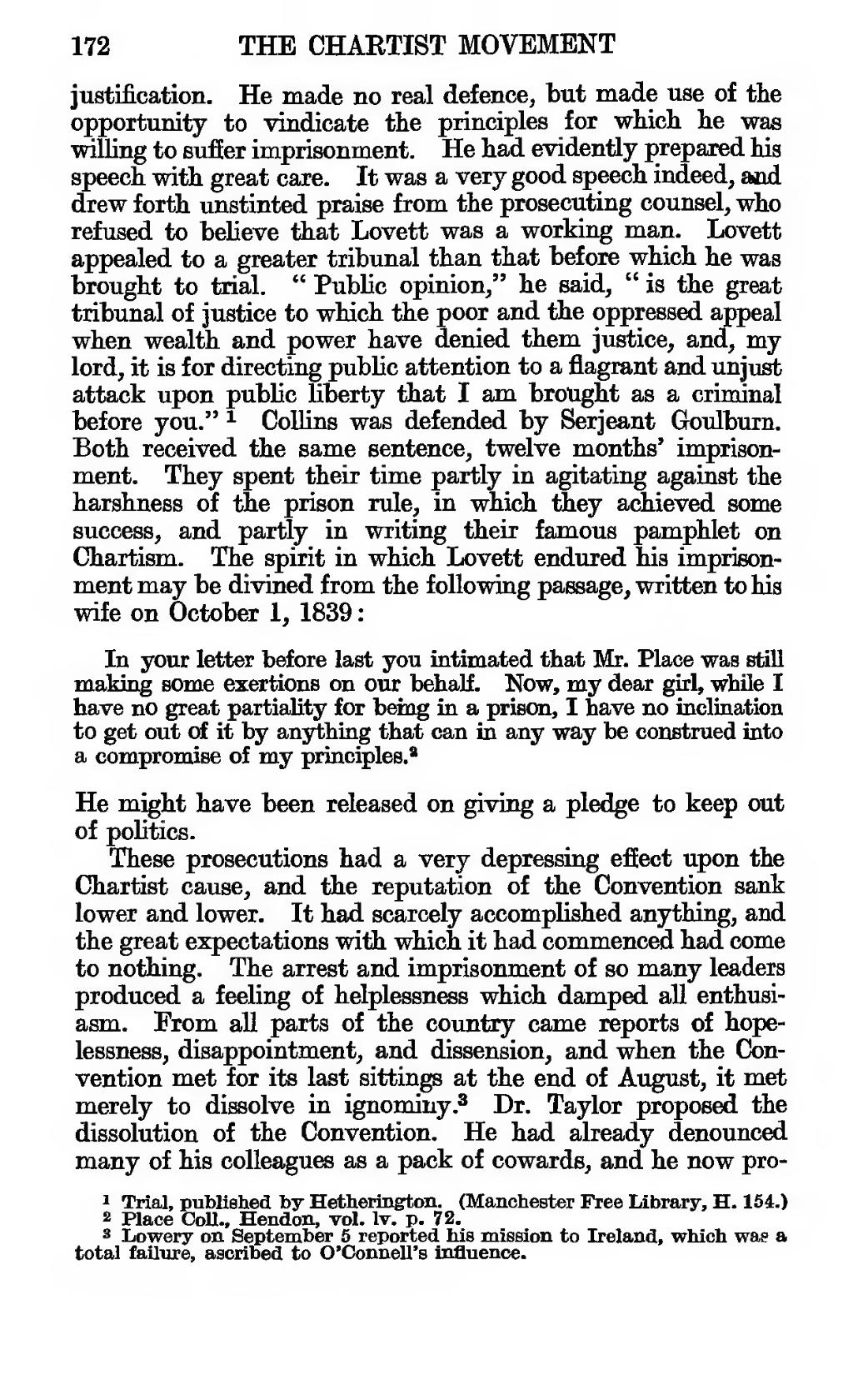justification. He made no real defence, but made use of the opportunity to vindicate the principles for which he was willing to suffer imprisonment. He had evidently prepared his speech with great care. It was a very good speech indeed, and drew forth unstinted praise from the prosecuting counsel, who refused to believe that Lovett was a working man. Lovett appealed to a greater tribunal than that before which he was brought to trial. "Public opinion," he said, "is the great tribunal of justice to which the poor and the oppressed appeal when wealth and power have denied them justice, and, my lord, it is for directing public attention to a flagrant and unjust attack upon public liberty that I am brought as a criminal before you."[1] Collins was defended by Serjeant Goulburn. Both received the same sentence, twelve months' imprisonment. They spent their time partly in agitating against the harshness of the prison rule, in which they achieved some success, and partly in writing their famous pamphlet on Chartism. The spirit in which Lovett endured his imprisonment may be divined from the following passage, written to his wife on October 1, 1839:
In your letter before last you intimated that Mr. Place was still making some exertions on our behalf. Now, my dear girl, while I have no great partiality for being in a prison, I have no inclination to get out of it by anything that can in any way be construed into a compromise of my principles.[2]
He might have been released on giving a pledge to keep out of politics.
These prosecutions had a very depressing effect upon the Chartist cause, and the reputation of the Convention sank lower and lower. It had scarcely accomplished anything, and the great expectations with which it had commenced had come to nothing. The arrest and imprisonment of so many leaders produced a feeling of helplessness which damped all enthusiasm. From all parts of the country came reports of hopelessness, disappointment, and dissension, and when the Convention met for its last sittings at the end of August, it met merely to dissolve in ignominy.[3] Dr. Taylor proposed the dissolution of the Convention. He had already denounced many of his colleagues as a pack of cowards, and he now pro-
